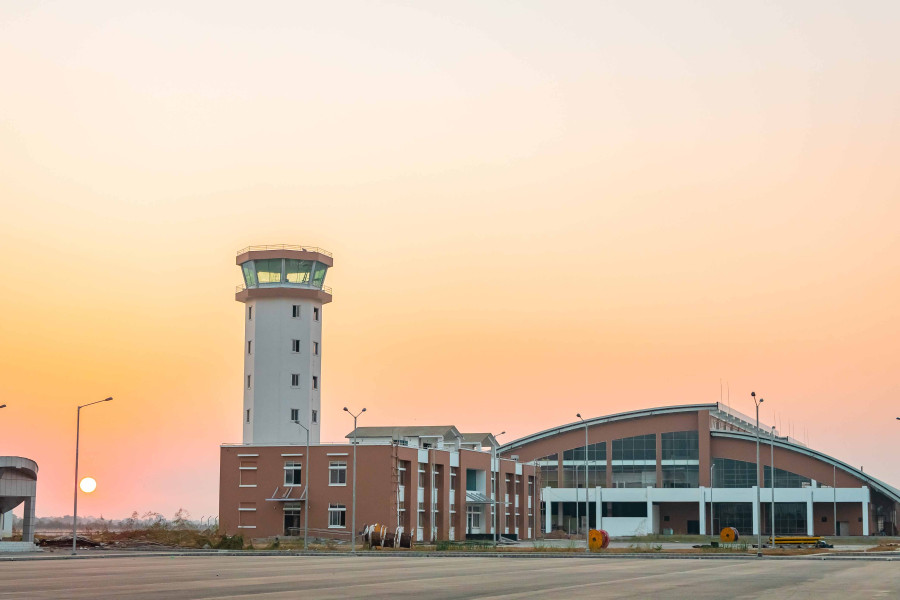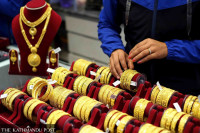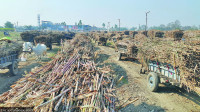Money
Testing of equipment at Bhairahawa airport to start soon
The Civil Aviation Authority of Nepal said that barring any unforeseen delays, Nepal’s second international airport would start handling flights by January.
Sangam Prasain
The project to calibrate and test newly-installed communication and navigation equipment at the new international airport in Bhairahawa has finally moved forward, but controversy dogs the plan which stalled for nearly two years due to the Covid-19 pandemic.
All new airports have to undergo flight inspection, including tryouts of all infrastructure, before they can enter service.
The Civil Aviation Authority of Nepal said that barring any unforeseen delays, Nepal’s second international airport after Kathmandu's Tribhuvan International Airport would start handling flights by January.
Located in the central Tarai, the new facility costing Rs6.22 billion has been named Gautam Buddha International Airport. It is the gateway to the international pilgrimage destination of Lumbini, the birthplace of Gautam Buddha. The airport has a 3,000-metre-long and 45-metre-wide runway.
A senior representative of the aeronautical Radio of Thailand arrived on Friday to assess the situation, Raj Kumar Chhetri, director general of the Civil Aviation Authority of Nepal, told the Post. “The stalled project has moved forward.”
According to the civil aviation body, based on the assessment in the field, the representative of the Thai company will recommend an appropriate schedule for the calibration and testing of the new communication and navigation infrastructure.
“Another technical team will arrive after three-four days,” said Pravin Neupane, an engineer who is overseeing the communication and navigation component of the project.
Technicians say that based on weather conditions, it may take at least 40 flying hours to complete the calibration of the new airport that will be done with a special aircraft flying at an altitude of 40,000 feet.
“The calibration, however, will depend on the weather. As of now, the climatic situation in the Tarai is favourable. There is no cold wave,” said Neupane.
The project was expected to complete all tasks including tests and calibration of the communication and navigation equipment by October this year, but the second wave of the coronavirus which started in mid-April upset its revised timetable.
On March 7, 2019, a Thai government-owned company Aeronautical Radio of Thailand won the $4.83 million contract for the supply, delivery, installation and commissioning of Communication, Navigation and Surveillance/Air Traffic Management, including meteorological equipment and other related services, at Gautam Buddha International Airport. The project was planned to be completed in 2019.
Despite the Covid situation, the Thai company had completed the installation of the navigation and communication equipment in August 2021, but informed the airport project that they would begin the calibration and testing of the equipment only after the Covid-19 situation in Nepal recedes to almost zero.
In May, the coronavirus positivity rate had reached 45 percent, with nearly 9,000 new cases appearing daily, an increase of about 3,000 percent from April.
Following the company’s reluctance to come to Nepal fearing Covid, the Civil Aviation Authority of Nepal approached the South Korean and Indian governments and the Federal Aviation Administration (FAA) of the United States to conduct the tests, but only India responded positively.
The FAA, an agency of the US government responsible for the regulation of aircraft and airports, had conducted flight inspections of the radar system at Bhatte Danda in Lalitpur in 2017.
The civil aviation body then initiated a government-to-government deal with India because it was difficult to bring foreign experts under the coronavirus circumstances, and that could delay tests at the new airport including periodic checks at other airports in Nepal.
Nepal has asked the Airports Authority of India to provide periodic airport and flight inspection services for its airports. Nepal had proposed signing a three-year contract with India. But there was a twist in the tale.
According to a senior official at the Civil Aviation Authority, they dispatched a formal letter to the Thai company informing of a breach in the agreement. “But the Thai company replied that it was ready to complete the work,” said the official, who wished to remain anonymous.
“Because Thailand reopened on November 1, a few days after the letter was dispatched.”
“Legally, the Thai company is allowed to carry out its contract. The breach of contract is normally done through mutual understanding,” said the official.
The civil aviation body also had signed a three-year contract to provide periodic airport and flight inspection services for its airports in Kathmandu, Simara, Biratnagar, Nepalgunj and Bhairahawa (domestic) as they need to have flight inspections done annually.
“The term of the three-year agreement will also end this year,” said the official.
These inspections are done in flight by using flight inspection aircraft to analyse and assess the performance and efficiency of the aids to ensure the safety of aircraft that rely on them for navigation and landing guidance.
But since Nepal has initiated a diplomatic process for signing a government-to-government deal for periodic airport inspection, the issue has landed into controversy.
“The board of the Civil Aviation Authority of Nepal or the Tourism Ministry will decide what to do now [regarding the communication with India],” said another senior official at the aviation body.
“The cost or fee for the periodic airport and flight inspection services proposed by the Indian state entity is lower than that charged by other companies. Besides, it will be easy for Nepal to rope in the Indian state entity because of proximity that will save time and costs,” said officials.
According to the civil aviation body, the international airport in Bhairahawa is fitted with the instrument landing system (ILS) and it needs to be tested every six months.
“So, the three-year government-to-government deal is not a bad idea.”




 22.26°C Kathmandu
22.26°C Kathmandu













